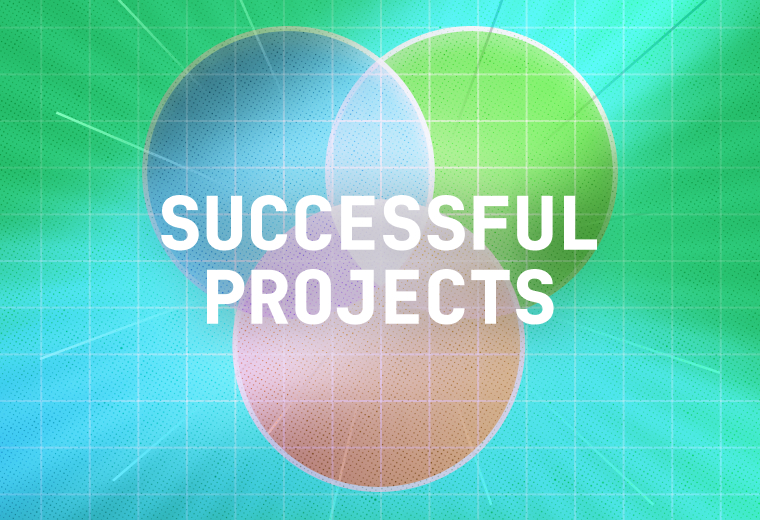Managing multiple projects at once can be thrilling, but it also brings the challenge of deadlines closing in from every direction. Effective deadline management is essential for maintaining productivity and ensuring project success. The solution? Efficient task management tools and strategies that keep teams on track. In this article, we’ll dive into the top strategies for managing deadlines and explore how Amploo can help you stay organized and meet deadlines with ease.
Why Deadlines are Important
Deadlines are critical in both professional and personal contexts. They provide structure, encourage discipline, and ensure tasks are completed on time. In fact, deadlines create a framework that allows teams to prioritize their workload and work systematically toward project completion.
According to studies, only 16% of people report consistently hitting their deadlines. But with a structured project plan and clear timelines, employees can break larger tasks into manageable parts, making it easier to meet deadlines and avoid last-minute stress.
Preparing for Deadlines
Effective preparation is key to managing deadlines successfully. Here are some strategies that can help you stay ahead:
Setting Realistic Goals
Start by clearly defining what needs to be accomplished. Break down larger projects into specific tasks, making sure the deadlines are both challenging and achievable. Unrealistic deadlines can lead to rushed work and burnout, so it’s essential to discuss timelines with all stakeholders to ensure everyone agrees on a feasible schedule.
Prioritizing Tasks
One of the most effective tools for prioritizing tasks is the Eisenhower Matrix, a framework that helps categorize tasks based on urgency and importance. It’s designed to help you focus on tasks that truly matter, while minimizing distractions from less critical ones. Here’s how it works:
- Urgent and Important: Tasks that need to be done immediately, often crisis-driven.
- Important but Not Urgent: Tasks that are critical for long-term success but don’t require immediate attention.
- Urgent but Not Important: Tasks that need to be done quickly but don’t necessarily contribute to long-term goals. These are often candidates for delegation.
- Neither Urgent nor Important: Tasks that don’t require attention and should be minimized or eliminated.
By focusing on tasks in the “Important but Not Urgent” quadrant, teams can proactively manage their workload and reduce last-minute stress. It helps by visually organizing these tasks, ensuring the team stays focused on high-priority activities.
Developing a Timeline
A detailed project timeline is critical for staying on track. Visual tools such as Gantt charts help teams map out milestones and deadlines. These charts allow for easy visualization of task dependencies, making it clear which tasks are crucial for timely project completion.
Leveraging Task Management Tools
Use task management tool to assign tasks, set deadlines, and track progress in real-time. These tools allow teams to collaborate seamlessly, stay organized, and ensure that nothing slips through the cracks.
Common Challenges with Deadline Management
Despite the best planning efforts, managing deadlines often comes with several challenges. Understanding these obstacles can help you overcome them more effectively.
Dealing with Procrastination
Procrastination is a common hurdle when managing deadlines. Deadlines, however, help combat procrastination by providing a clear endpoint. Task management tools can help teams set smaller, manageable goals with shorter deadlines, motivating individuals to start sooner and maintain steady progress.
Managing Multiple Projects
Juggling multiple deadlines across various projects requires careful planning. Techniques like time blocking and the Pomodoro Technique can be especially helpful.
- Time Blocking: This technique involves dividing your day into blocks of time, with each block dedicated to a specific task or project. By assigning tasks to specific time slots, you ensure focused effort on one activity at a time, reducing distractions and boosting productivity. For example, you could allocate two hours in the morning for project A, another hour after lunch for project B, and so on.
- Pomodoro Technique: This time management method encourages working in short, focused bursts, typically 25 minutes, followed by a short 5-minute break. After completing four "Pomodoros," you take a longer break of 15–30 minutes. This technique helps maintain concentration, combat fatigue, and make steady progress on tasks throughout the day.
Using these techniques can significantly enhance your ability to manage multiple projects and meet deadlines effectively.
Handling Unexpected Setbacks
No matter how well you plan, unexpected setbacks can throw off your schedule. Flexibility is key here. Be prepared to adapt your plan, shift priorities, and allocate resources accordingly. Regular check-ins and progress reviews can help identify potential issues before they escalate.
Unrealistic Deadlines
One of the most common challenges is setting unrealistic deadlines. This can lead to stress, rushed work, and even missed deadlines. Involve all stakeholders in the planning process to ensure that deadlines are based on realistic assessments of the project scope and resources available.
6 Effective Deadline Management Strategies
So, how do you manage deadlines efficiently? Here are six proven strategies:
1. Breaking Down Tasks
Breaking down tasks into smaller, manageable parts makes large projects less overwhelming. Define major milestones and break them into actionable subtasks. Assign deadlines to each subtask to ensure consistent progress toward the project goal.
2. Delegating Responsibilities
Delegating tasks allows team members to contribute their strengths, ensuring a balanced workload. Clear communication about responsibilities helps foster accountability and ensures everyone is on the same page.
3. Using Project Management Tools
Task management software like Amploo provides a centralized platform for organizing tasks, setting deadlines, and tracking progress. These tools allow project managers to visualize project timelines, assign tasks, and monitor team performance all in one place.
4. Maintaining Clear Communication
Effective communication is key to deadline management. Regular updates through team meetings and project management software help ensure that everyone stays informed. Clear communication also prevents misunderstandings and helps address issues promptly.
5. Monitoring Progress
Regularly monitoring progress helps identify potential delays early on. By tracking time and performance using tools like Amploo, project managers can ensure that the team is meeting deadlines and adjust the plan as needed.
6. Adjusting Plans When Necessary
Being flexible is crucial for managing deadlines. Regular reviews of project progress can help identify when adjustments are necessary. If an unexpected challenge arises, don’t hesitate to revise timelines or reassign resources to keep the project on track.
Amploo's Features for Deadline Management
Amploo is designed to make deadline management easier. Here’s how it can support your team:
- Task Management: Create, assign, and prioritize tasks with clear deadlines. Amploo’s interface allows teams to see the full scope of their projects at a glance, helping to keep everything organized.
- Time Tracking: Amploo's built-in time tracking feature allows team members to log hours spent on tasks. This helps managers monitor progress and ensures that projects stay on schedule.
- Reporting: Generate detailed reports that provide insights into team performance, task completion rates, and potential bottlenecks.
- Collaborative Workspaces: Amploo’s collaborative workspaces encourage team communication and keep everyone aligned with project goals and deadlines.
By leveraging these features, teams can ensure that deadlines are met, resources are used efficiently, and projects are delivered on time.
Conclusion
Effective deadline management is key to ensuring that projects are completed on time and with high quality. By using a combination of realistic planning, clear communication, and the right task management tools, teams can improve productivity and ensure that deadlines are consistently met. Whether you’re handling a single project or juggling multiple timelines, having a structured approach will help you stay on track and deliver results. Join Amploo today and enjoy a 30-day free trial!



